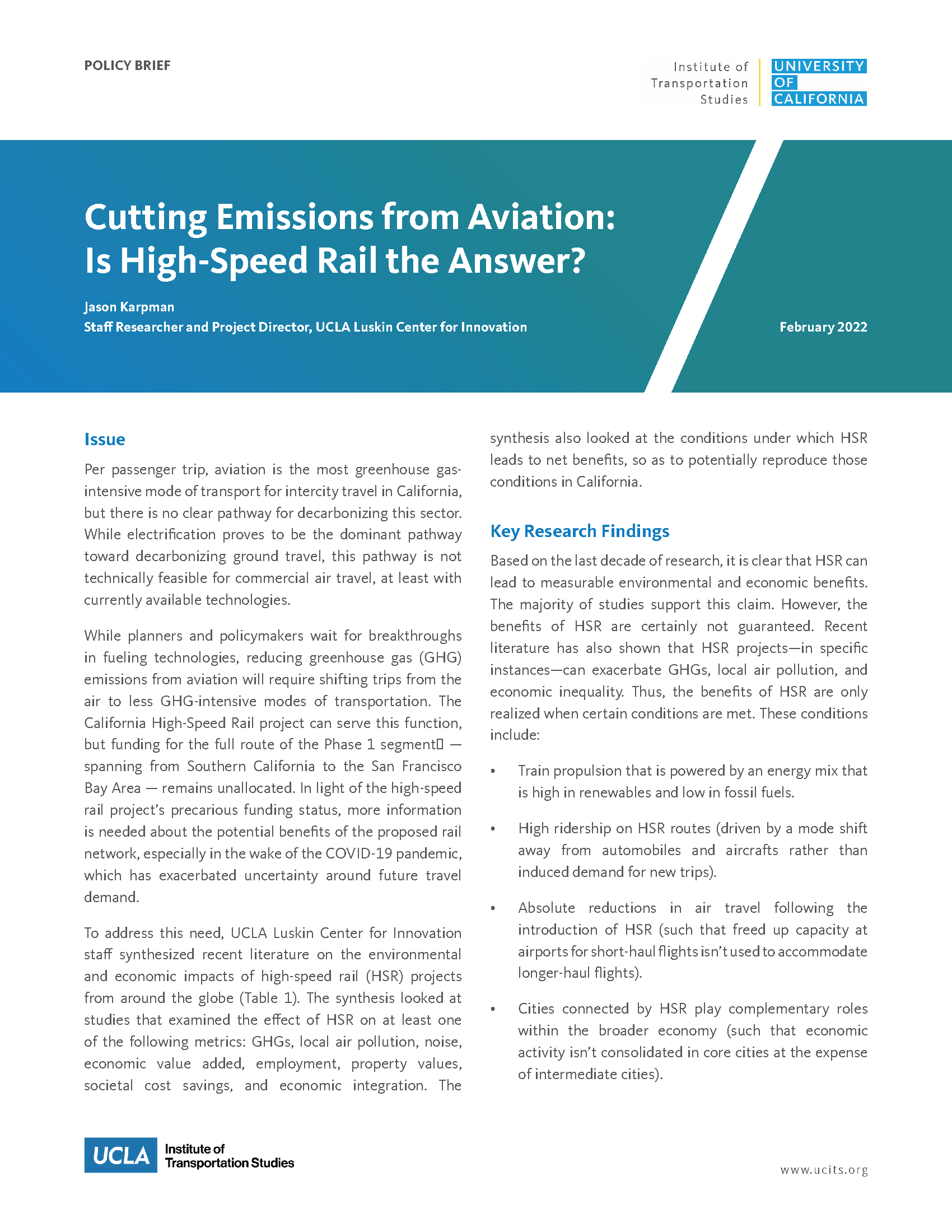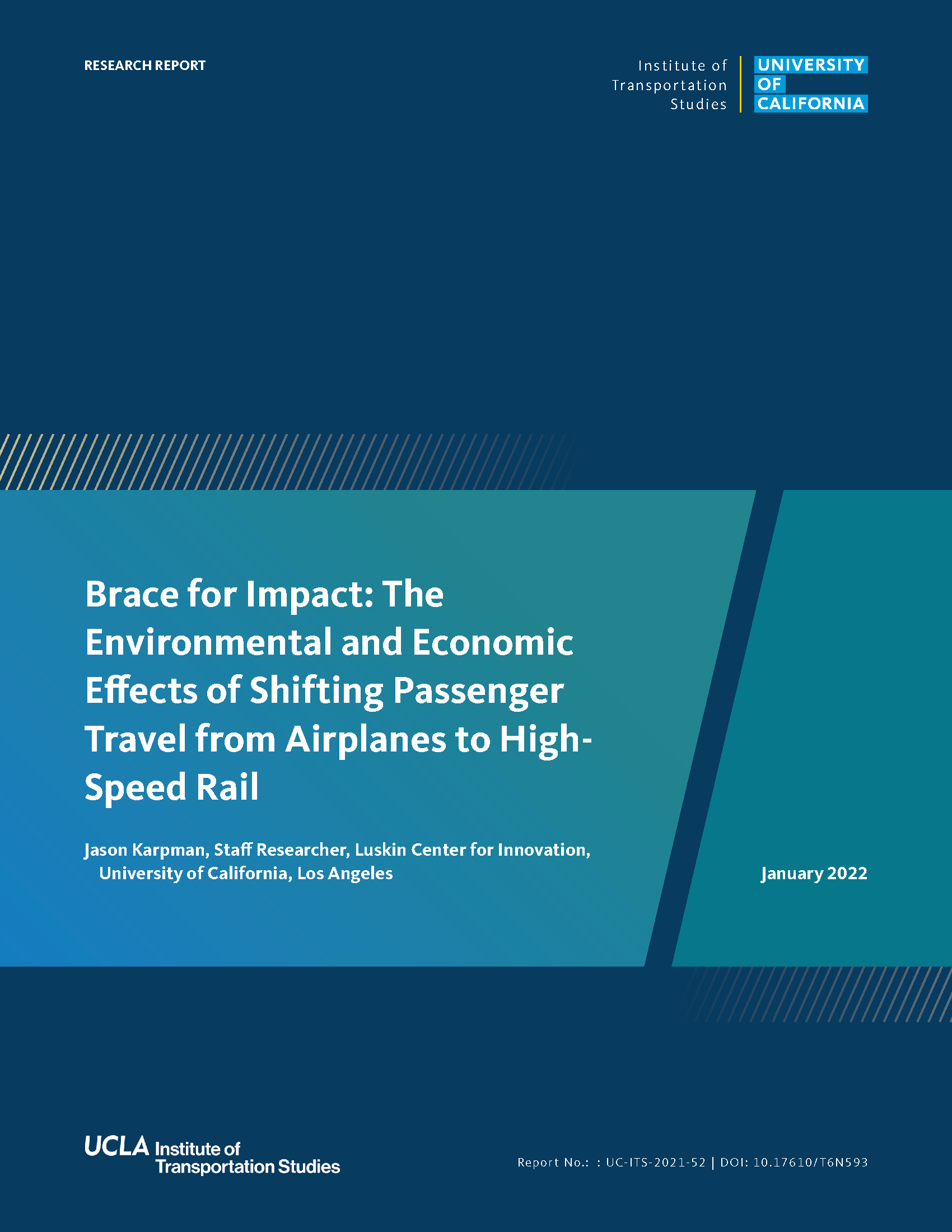Project ID:
LA2012Year Completed:
2022Funding Source:
Statewide Transportation Research ProgramProject Description
Aviation is a difficult sector to decarbonize. The high energy and power requirements of flight make electrification challenging and low-carbon liquid fuels face their own technical and practical hurdles. While much of the attention on air transportation pertains to passenger travel, the relatively smaller air cargo industry faces similar challenges to decarbonization as the passenger airline industry.
In the face of a difficult to decarbonize aviation sector, carbon savings may be realized by facilitating modal shifts from air transportation to less-polluting ground transportation where feasible. California’s effort to build a high-speed rail network for interregional travel in California is an example of such a strategy and features prominently in the state’s Scoping Plan as one pathway towards meeting 2050 GHG emissions reduction targets in the transportation sector.
Understanding the mechanisms, costs and benefits of modal shifts away from air transport is critical to informing policy and decision-making. There is an emerging body of research focused on the diversion of air transportation to other modes. However, scholarship in this area is both fragmented across disciplines and incomplete. For example: while many studies have examined the environmental implications of shifting travel modes, the determinants of consumer mode choice is less well examined.

J.R. DeShazo (PI)
deshazo@ucla.edu
Research Team
Program Area(s):



